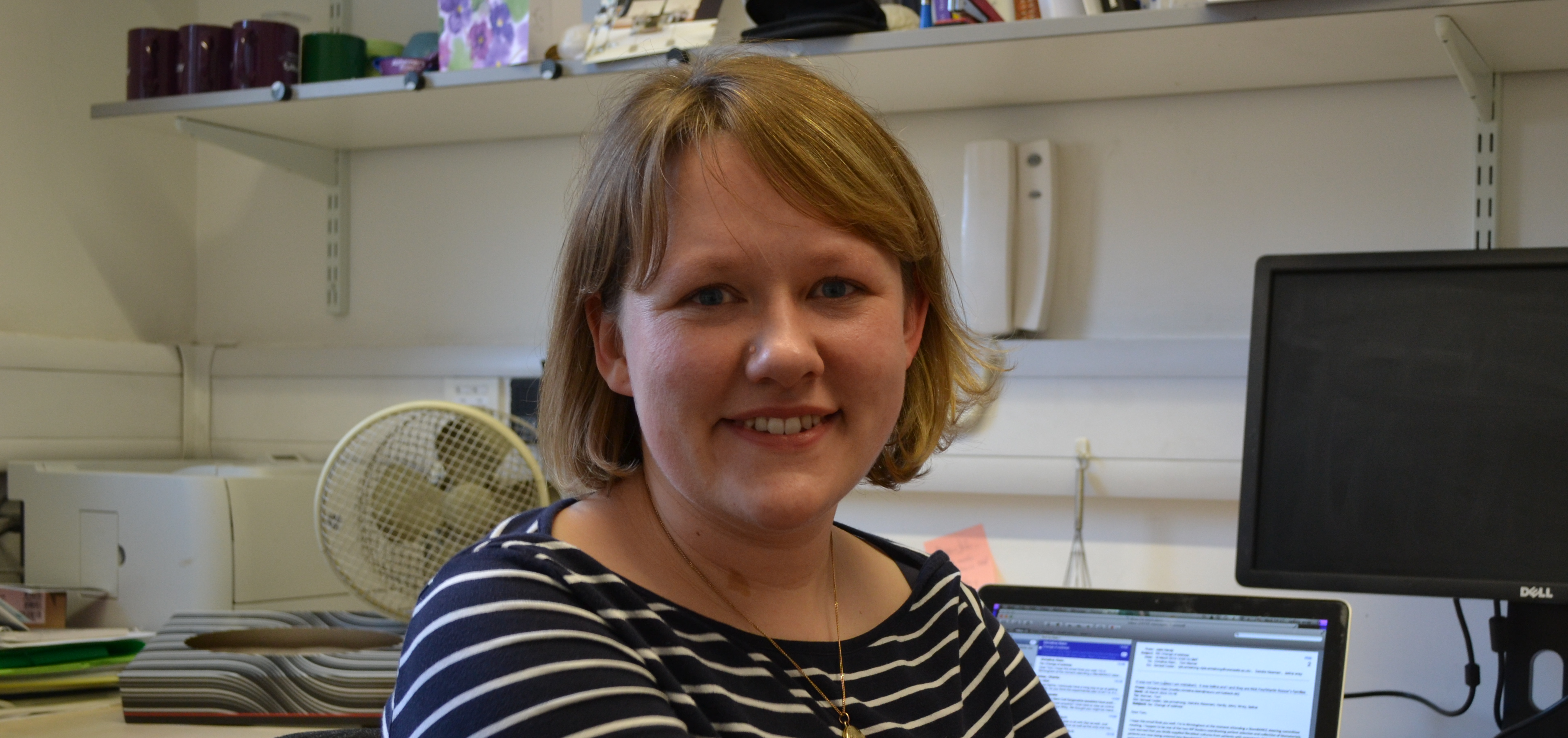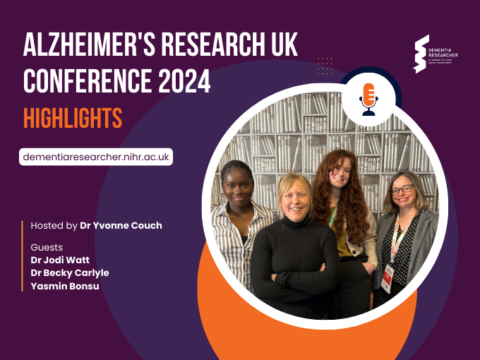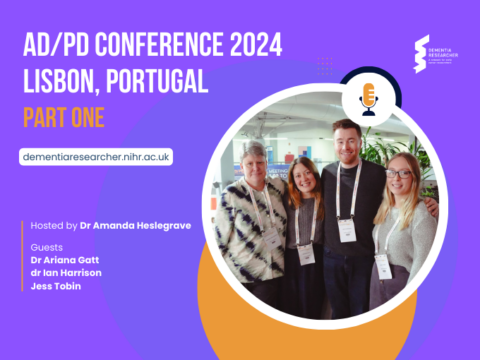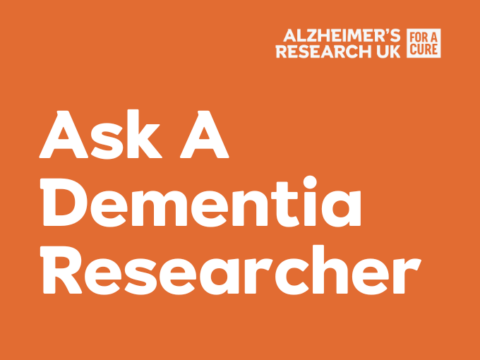
This is a cross post with Alzheimer’s Research UK
We’re delighted to announce that Dr Selina Wray has won the David Hague Early Career Investigator of the Year Award 2018 for her outstanding contribution to the tau biology field. The prize is awarded each year at the Alzheimer’s Research UK Conference to celebrate excellence in biomedical dementia research. Our judges were not only impressed by Dr Wray’s clear scientific goals but also her grasp of the importance of mentoring, collaboration, and public engagement within the dementia research community. We caught up with Selina to discuss her win.
Tell us about your contribution to dementia research?
I’ve worked in dementia research for 12 years now, since I was a PhD student. My particular focus has Univerbeen understanding how tau, a single protein, can play a role in multiple disorders.
I’ve done a lot of work with post-mortem brain tissue, trying to understand the different tau patterns for different diseases. However, the difficulty with post-mortem tissue is that we are working at end stages of the disease. For that reason, I moved towards working with stem cell models.
We were early adopters of induced Pluripotent Stem Cell technology, generating stem cells from people with mutations linked to dementia and using those stem cells to make neurons, and we were one of the first groups to use this technology to explore tau in different disease backgrounds. One of our key findings was showing disruptions in tau splicing and we’re now moving forward to use those models to understand how alterations in tau eventually lead to neuronal death.
What does winning this award mean to you?
It’s a huge privilege to accept this award! What I’m really pleased about is in the panel feedback they specifically commented on my collaborations and public engagement work. It’s great to see those things recognised as well as the research because being a scientist is about more than just being at the bench and plugging away at experiments, its about being a good citizen and trying to support the work of charities such as Alzheimer’s Research UK so I’m really happy to see that being acknowledged.
What is the importance of mentorship in research?
I’ve benefitted greatly from having good mentorship throughout my career. Science is never a straightforward path and having people who have seen it all before and can help you navigate key transition points is incredibly important. For me, having these mentors has been really valuable when things aren’t going to plan, everyone gets grants and papers rejected and its difficult to not take it personally. I’ve found having mentors who can help me put the bad things into context as a minor blip is important in keeping my motivation and encourages me to push forward.
How did you get involved in public engagement?
I’ve been involved in public engagement for a while now and it’s something that I really enjoy. I first started as a PhD student at King’s College London. They had an annual open day where they bring the public in, show them around the labs and explain the research that is happening. Since moving to UCL I’ve tried to expand my involvement, facilitated in part by Alzheimer’s Research UK. Last year we ran a huge event at the Science Museum which was great fun, we’ve also done a lot of public talks from speaking to patient support groups that we have at UCL through to things like Pint of Science where we give a talk in a pub, everyone likes science and beer so they’re all good fun. It’s something that I’m keen to keep doing as it’s a fantastic way to remind yourself why we do what we do and its great to see how much people are interested in the progress of dementia research.
What advice would you give to other early career researchers?
I have a number of different bits of advice really. Firstly, find good mentors who can help support you through key transition points and can give you access to opportunity, that’s something that I personally have really benefited from. Science can be difficult, it involves hard work, sometimes long hours and a lot of rejection with both papers and grants so you need to find colleagues and mentors that can support you as well as finding your own way to deal with it as science should never come in the way of your physical or mental health.
Its difficult but try not to compare yourself to others in the field, if you see scientists talk or look at their publications you’re seeing the highlights of their career and not the difficulties they might have gone through. Remember that everyone’s journey is different.
Finally, you can increase your likelihood of being in the right place at the right time by networking. Networking doesn’t always mean finding the big cheese in the room, peer-to-peer networking is also crucial. The people you meet now as a PhD student or a postdoc could be the ones reviewing your applications and papers or may become your collaborators. So building and maintaining network I have found both valuable and enjoyable.
What’s next for the Wray lab?
The Wray lab is only just getting started! We are continuing to focus on tau, and the mechanisms linking tau to cell death in neurodegeneration, but we are also looking at other cellular processes. For example, I am collaborating with Dr Helene Plun Favreau to understand mitochondrial dysfunction. There’s a lot of evidence showing that this is important in Parkinson’s disease and it’s emerging to also plays a crucial role in Alzheimer’s disease and frontotemporal dementia. Looking at how these common mechanisms can underlie clinically different diseases is something we are incredibly excited to expand on.
We are also working closely with clinical colleagues, using our patient cell models to understand the biological differences in clinical presentation of Alzheimer’s disease, because we know its not a uniform entity and its not a uniform experience for the person. Understanding how differences at the molecular level can translate into differences at the clinical level is something that we are really excited about working on.
Dementia Researcher is delighted to have awarding winning Dr Selina Wray as one of first panellists for Ask the ‘Expert’. All this month you can put your questions to Selina, testing her knowledge and getting her advice on Induced pluripotent stem cells,
To ask Selina a question click the button below.
Dr Selina Wray – Ask an Expert Follow @SelinaWrayApplications for the David Hague Early Career Investigator of the Year Award 2019 will open May 2018. Find out more at alzheimersresearchuk.org/early-career-award
This is a cross post with Alzheimer’s Research UK

 Print This Post
Print This Post





